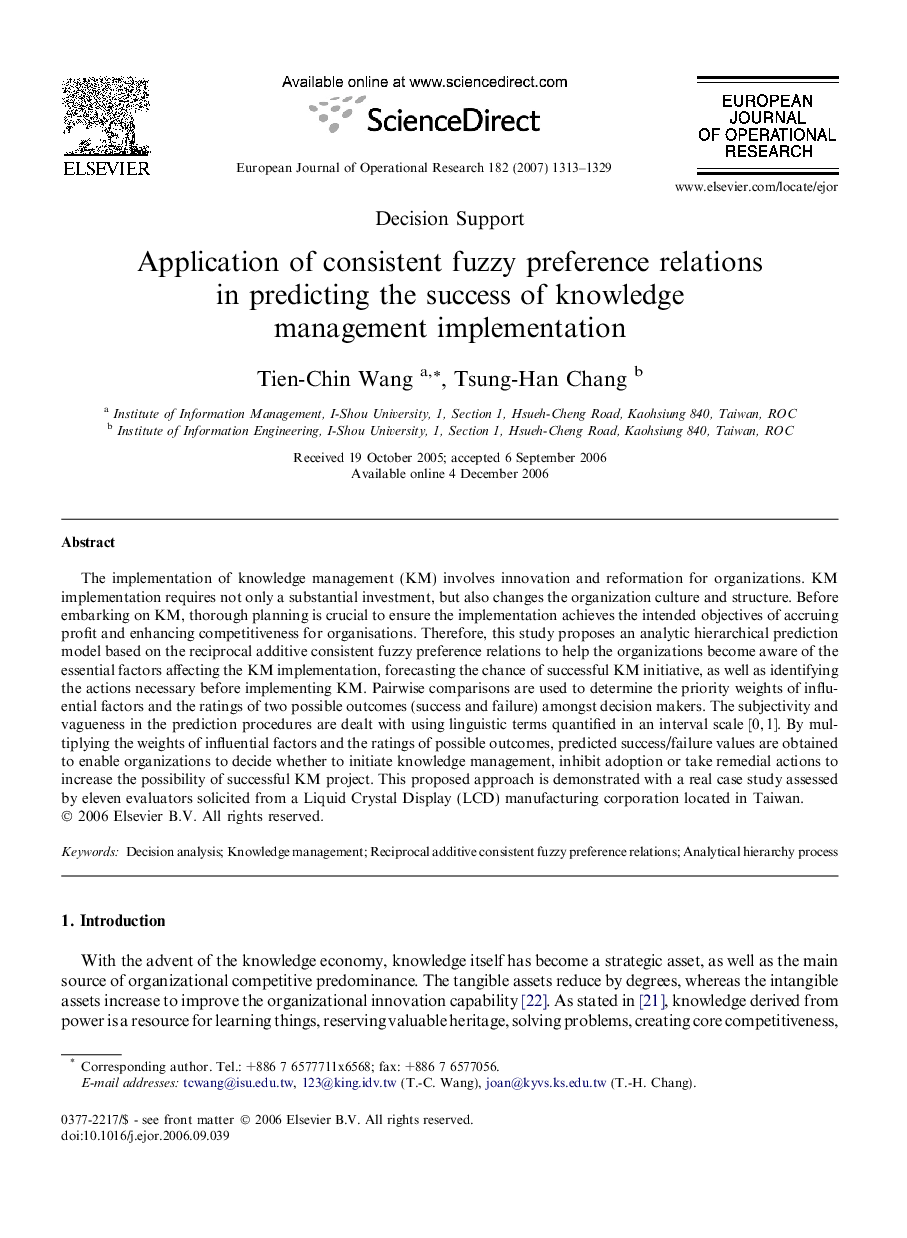| Article ID | Journal | Published Year | Pages | File Type |
|---|---|---|---|---|
| 482996 | European Journal of Operational Research | 2007 | 17 Pages |
The implementation of knowledge management (KM) involves innovation and reformation for organizations. KM implementation requires not only a substantial investment, but also changes the organization culture and structure. Before embarking on KM, thorough planning is crucial to ensure the implementation achieves the intended objectives of accruing profit and enhancing competitiveness for organisations. Therefore, this study proposes an analytic hierarchical prediction model based on the reciprocal additive consistent fuzzy preference relations to help the organizations become aware of the essential factors affecting the KM implementation, forecasting the chance of successful KM initiative, as well as identifying the actions necessary before implementing KM. Pairwise comparisons are used to determine the priority weights of influential factors and the ratings of two possible outcomes (success and failure) amongst decision makers. The subjectivity and vagueness in the prediction procedures are dealt with using linguistic terms quantified in an interval scale [0, 1]. By multiplying the weights of influential factors and the ratings of possible outcomes, predicted success/failure values are obtained to enable organizations to decide whether to initiate knowledge management, inhibit adoption or take remedial actions to increase the possibility of successful KM project. This proposed approach is demonstrated with a real case study assessed by eleven evaluators solicited from a Liquid Crystal Display (LCD) manufacturing corporation located in Taiwan.
